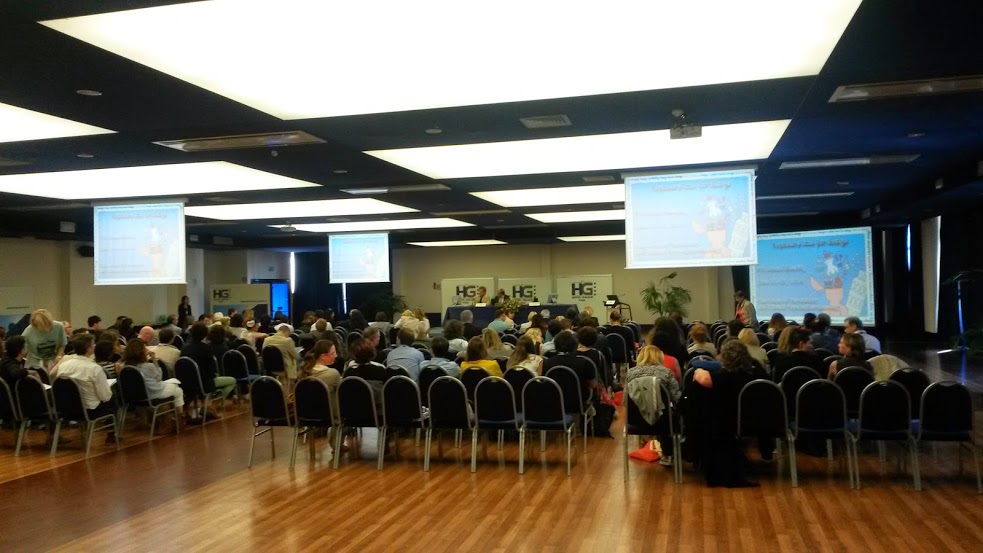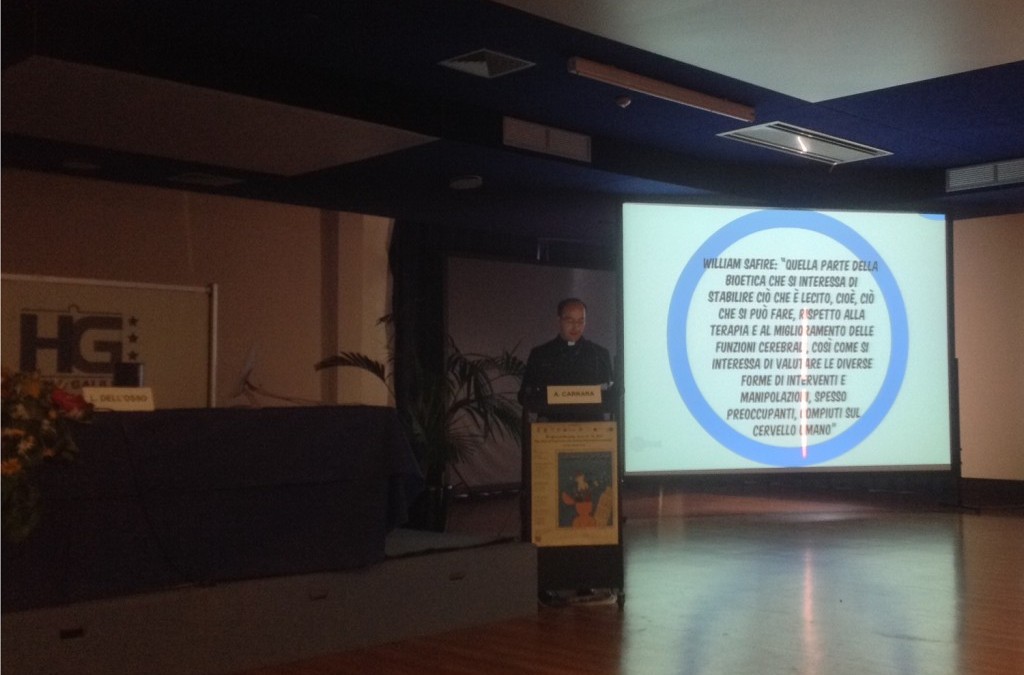Prof. Fr. Alberto Carrara, LC, Fellow of the UNESCO Chair in Bioethics and Human Rights and Coordinator of the Italian Research Group in Neurobioethics (GdN) participated in the 7th Annual Meeting – Pisa Days of Psychiatry and Clinical Psychopharmacology titled: Psychiatry: time for change, which took place in the Galilei Hotel in Pisa (Italy) on June 16-18, 2014.
Prof. Carrara gave a plenary lecture dealing with the contemporary application of neuroscience in psychiatric practice, with a particular focus on psychiatric patients as vulnerable members of society. The lecture was titled: Neuroethics in Psychiatry, and took place on June 18, 2014, at the end of the meeting.
Carrara noted that psychiatry has greatly changed with the advances in research. The remarkable increase in neuroscientific research in recent decades has corroborated the notion that “mind” and “brain” largely correspond and that psychiatric symptoms also result from brain disturbances. Neuroscientific research has opened new horizons to psychiatric interventions, thanks to the development of treatments such as psychotropic drugs. Today we can affirm that we know much about the pathophysiology of mental disorders, we can control most psychiatric disorders and symptoms and, in an increasing number of cases, we can even restore normal equilibrium. Likewise, psychological practice has become more scientifically-oriented with some techniques showing reliable effectiveness, to the point that the combination of both drugs and focused psychological treatment can be decisive in some patients.
Moreover, diagnostic instruments have become more accurate and more widely applied: They constitute a sort of common language that undergoes continuous refining on the basis of bedside feedback and the ever-growing support of biological findings.
Although it is true that the mind is rooted in the brain and that the understanding of the brain in molecular terms will promote great advancements, it is also plausible that the mind is something more complex, escaping even our current attempts to define or delimit it. Although we can dissect psychiatric disorders into distinct symptoms or symptom clusters to understand better their molecular and/or neurological bases, such progressive dissecting of complex phenomena will not lead us to reach the fundamental point of Psychiatry.
Indeed, at this point, we need to incorporate all data deriving from neuroscientific research (which cannot be neglected nowadays even by the most traditionally-oriented psychoanalysts), into more exhaustive and comprehensive models, including the challenges deriving from the environment. Psychiatry is a discipline which is linked to and, at the same time, is the reflection of social urges, demands, problems and fears, to such a degree that the individual may be considered as the result of a constant interaction between brain and environment.
For these reasons, in his lecture Prof. Carrara proposed a proper anthropological vision that could help psychiatric clinics and operators in order to prescribe not just the optimal treatment of mental disorders to the restoration of a deranged brain equilibrium, but also to consider its social component and, consequently, the effects that a single individual may have upon society.
We must therefore look for other ways of thinking about the brain, the mind, its functioning and disturbances, so as to start courageously propose new hypotheses that go beyond the currently accepted paradigms.


